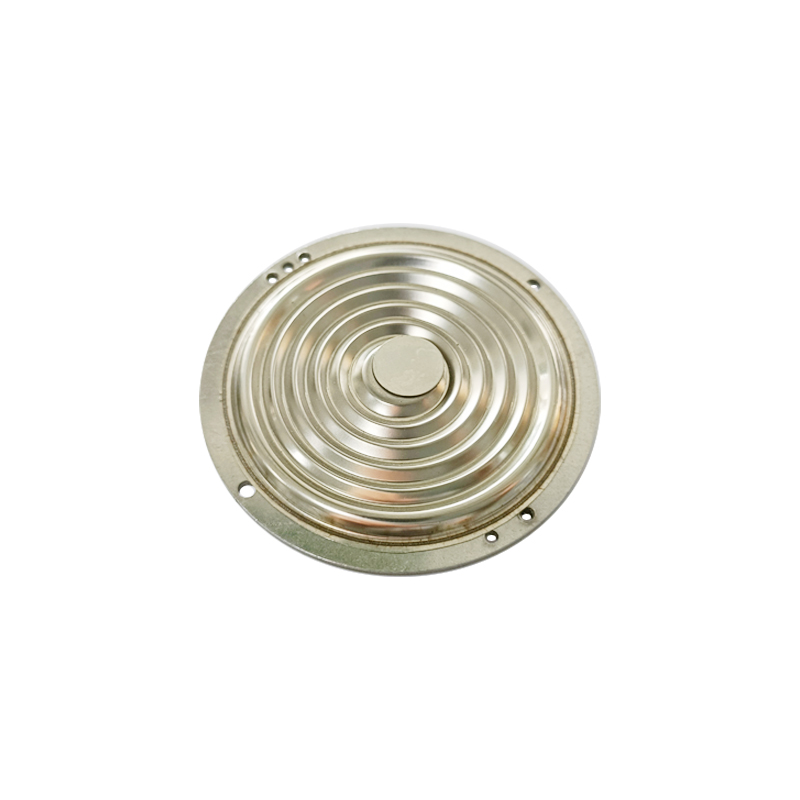
Nov . 21, 2024 17:15 Back to list
jah about diaphragm pressure gauge
Understanding Diaphragm Pressure Gauges
Diaphragm pressure gauges are essential instruments used across various industries to measure pressure accurately. They utilize a thin, flexible diaphragm that deforms under varying pressure conditions, providing precise readings. This article explores the working principle, design features, applications, and advantages of diaphragm pressure gauges.
Working Principle
At the core of a diaphragm pressure gauge lies a curved diaphragm made from materials like stainless steel, which are robust and highly resistant to corrosion. When pressure is applied to one side of the diaphragm, it deflects. The amount of deflection is proportional to the pressure exerted. This movement is transmitted to a mechanical system, usually a linked lever or gear mechanism, which converts the deflection into a readable scale on the gauge.
The gauge is usually sealed, ensuring that the measuring instrument remains unaffected by environmental factors such as dust, moisture, and corrosive gases. This sealing capability is crucial, especially in hostile environments. The elasticity of the diaphragm is fundamental, as it allows for quick response times and reduces wear over extended use.
Design Features
Diaphragm pressure gauges come in various designs tailored for specific applications. Some key features include
1. Material Choice The diaphragm can be made from several materials, including stainless steel, hastelloy, or nylon, depending on the process fluid's nature. The choice of material affects the gauge's durability and accuracy.
2. Range of Measurements Gauges are available to measure both absolute and gauge pressure. Absolute gauges measure pressure relative to a vacuum, while gauge pressure gauges measure pressure relative to atmospheric pressure.
3. Calibration Accurate calibration is essential for reliable measurements. Many diaphragm gauges come with a built-in calibration system or the option for external calibration for precision applications.
4. Temperature Compensation Enhanced designs may include features that compensate for temperature variations, ensuring that the readings remain accurate under fluctuating conditions.
Applications
jah about diaphragm pressure gauge

Diaphragm pressure gauges are versatile and find applications in numerous sectors
- Oil and Gas They are used in pipelines and refineries to monitor pressure and prevent hazardous situations. - Water and Wastewater Management Monitoring pressure in water supply systems or treatment plants is crucial for operational efficiency. - Pharmaceuticals In highly regulated environments, accurate pressure measurements are essential for compliance and safety. - Food and Beverage Guarantees the integrity of the process by ensuring that vessels remain within safe pressure limits. - HVAC Systems These gauges help in maintaining airflow and pressure levels in heating, ventilation, and air conditioning systems.
Advantages
Diaphragm pressure gauges boast several advantages that make them the preferred choice in many applications
1. Robustness Their sturdy construction and corrosion-resistant materials assure longevity and reliability, even in harsh environments.
2. High Accuracy The sensitive nature of the diaphragm results in precise measurements, which are crucial for safety and operational efficiency.
3. Low Maintenance Due to their design—often being sealed against contaminants—diaphragm gauges require minimal maintenance compared to other types of pressure measurement devices.
4. Wide Range of Applications Their adaptability to various media (gas, liquids) and conditions (corrosive environments, high temperatures) makes them universally applicable.
5. Compact Design Diaphragm gauges are often smaller and lighter than other pressure measurement types, allowing for easy installation in tight spaces.
Conclusion
In summary, diaphragm pressure gauges are critical tools in pressure measurement across numerous industries. Their design and working principle allow for high accuracy, durability, and adaptability to various applications. Understanding these gauges is invaluable for professionals in fields where pressure monitoring is crucial, ensuring that operations are both safe and efficient. By choosing the right diaphragm pressure gauge, industries can significantly enhance their performance and reliability.
-
High-Precision Mass Diaphragm Pressure Gauge - Reliable & Durable Solutions
NewsJun.10,2025
-
Explain Diaphragm Pressure Gauge Expert Guide, Top Manufacturers & Quotes
NewsJun.10,2025
-
Affordable Differential Pressure Gauge Prices in China Top Manufacturers
NewsJun.10,2025
-
Reliable Water Fire Extinguisher Pressure Gauges for Safety
NewsJun.10,2025
-
Durable Diaphragm Protection Pressure Gauges Get Quote
NewsJun.09,2025
-
WIKA Differential Pressure Gauge with Switch Reliable Monitoring & Control
NewsJun.09,2025
